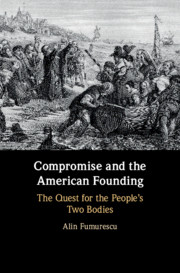Book contents
3 - The Uncompromising Patriots
“Friends, brethren, enemies will prove …”
Published online by Cambridge University Press: 28 August 2019
Summary
By making salvation a personal matter, the Great Awakening ended up effectively destroying the former theologico-political communities. New political identities were needed. In the process, thirteen new political peoples were forged, one for each colony. The elected colonial assemblies became the primary bond holding together these peoples. But the idea that their elected representatives constituted a natural aristocracy of the wise and virtuous was never abandoned by the colonial Weltanschauung. From this perspective, the Patriots proved quite versatile, making appeals alternatively to both the social and the political compacts, pending on the circumstances. Once they realized that even an actual representation in the British parliament would have done them no service, since their representatives would have always amounted to an insignificant minority, they abandoned entirely any pretense that the British legislative could possibly represent them, and claimed that the only connection with Great Britain was through the political compact of each colonial people with the king. When King George refused to side with the colonies, the political compacts with him were declared void, and he became, in the Declaration of Independence, the perfect scapegoat.
- Type
- Chapter
- Information
- Compromise and the American FoundingThe Quest for the People's Two Bodies, pp. 66 - 104Publisher: Cambridge University PressPrint publication year: 2019



